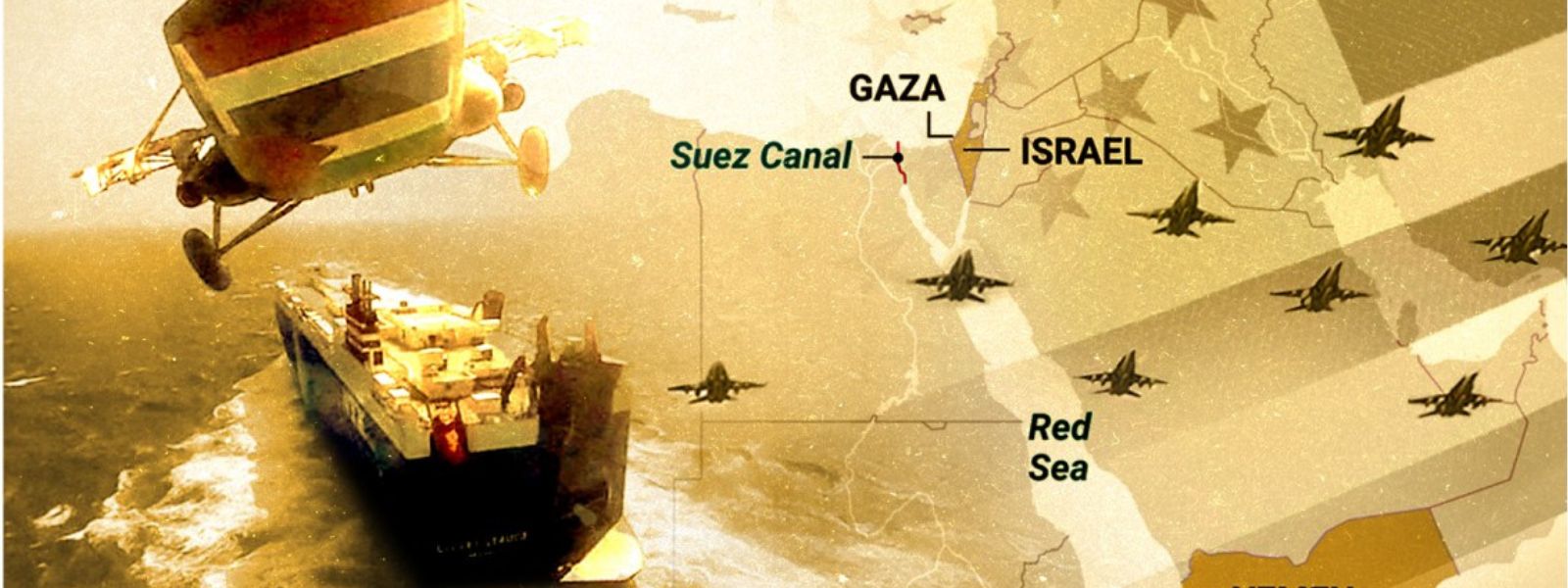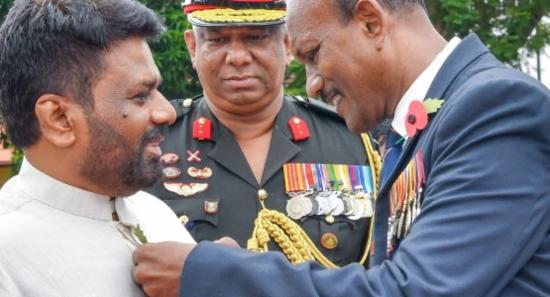.webp)

Non-Aligned or US Ally? Sri Lanka's Red Sea Gamble Splits House
COLOMBO (News 1st); Sri Lanka's decision to deploy a naval vessel to the Red Sea to combat Houthi rebels has ignited debate within the country, with opposition leader Sajith Premadasa questioning the economic and political motives behind the move.
Premadasa, pointing to Sri Lanka's current economic struggles, demanded clarification on the benefits of allocating 250 million rupees for the operation. He urged the international community to offer debt relief in exchange for such participation. Instead, he suggested prioritizing domestic needs like equipping schools with computers.
Rauff Hakeem, another MP, questioned the decision's alignment with Sri Lanka's purported non-aligned foreign policy. He expressed concerns about sending the navy at the behest of the US and Israel while simultaneously attending the Non-Aligned Movement Summit.
However, State Minister of Defence Premitha Bandara Tennakoon defended the decision, insisting it's not US or Israel-driven but motivated by safeguarding the critical Red Sea shipping lane. He argued that bypassing the Red Sea for alternative routes like South Africa would significantly increase the cost of goods, impacting Sri Lanka's economy.
Tennakoon emphasized Sri Lanka's international obligation to combat terrorism and its commitment to fulfilling its maritime responsibilities. He compared the situation to India, stating that even with significant poverty, no one dictates priorities to them regarding space exploration. He claimed no additional expenses are incurred as the navy already operates on the high seas and sees this as a vital regional security obligation.
Premadasa countered by criticizing the comparison to India's rapid development, stating that Sri Lanka's current woes stem from the previous Rajapaksa government's mismanagement, similar to sending a "rocket" while the country sank into bankruptcy. He questioned why Sri Lanka should take on a task better suited to powerful nations like the US with its superior naval strength.
At President Ranil Wickremesinghe's behest, the Sri Lanka Navy is preparing to send ships to the Red Sea and surrounding waters.
Sri Lanka Navy Spokesperson Captain Gayan Wickramasuriya said that the deployment will be in support of Operation Prosperity Guardian, a US-led initiative aimed at combating Houthi rebel activity in Yemen.
While no specific date has been announced, Sri Lanka Navy Spokesperson Captain Gayan Wickramasuriya confirmed they are making arrangements for the deployment of vessels to the Red Sea.
Operation Prosperity Guardian covers a wider area than just the Red Sea, encompassing the Arabian Sea and the Gulf of Oman. India has already deployed six warships as part of this initiative.
On the 3rd of January 2024, in a surprise announcement, Sri Lankan President Ranil Wickremesinghe revealed the country's decision to join international efforts against the Houthis in Yemen, citing concerns about rising global shipping costs and potential disruptions to its own trade.
Addressing the recent hike in commodity prices, President Wickremesinghe linked it to ongoing conflicts in Ukraine and Gaza, alongside the Houthis' missile attacks in the Red Sea. He warned that if shipping companies opted to bypass the Red Sea due to security concerns, resorting to longer routes around South Africa, it would further escalate price increases for essential goods.
To address this challenge, President Wickremesinghe announced the deployment of a Sri Lanka Navy ship to the Red Sea "for security purposes."
The announcement comes amidst heightened tensions in the Red Sea, a crucial shipping lane connecting Asia and Europe.
Houthi rebels, who control large swathes of Yemen, have launched several missile attacks on Saudi Arabia and other coalition partners in recent months, raising concerns about maritime security.
The country, a founding member of the Non-Aligned Movement, has traditionally steered clear of taking sides in international conflicts.
Mohammed Ali al-Houthi, head of Yemen's Houthi supreme revolutionary committee, issued a stark warning, stating that any country associating with the United States-led Red Sea coalition risks losing its maritime security and becoming a target
Houthi rebels, demanding an end to Israeli attacks on Palestine, have launched drone and missile attacks on ships in the Red Sea, prompting vessels to bypass the route and sail around Africa.
This has created a crisis in the commercial shipping sector, necessitating international cooperation to ensure maritime security.
Other Articles
Featured News





.png )




-774365_550x300.jpg)























.gif)